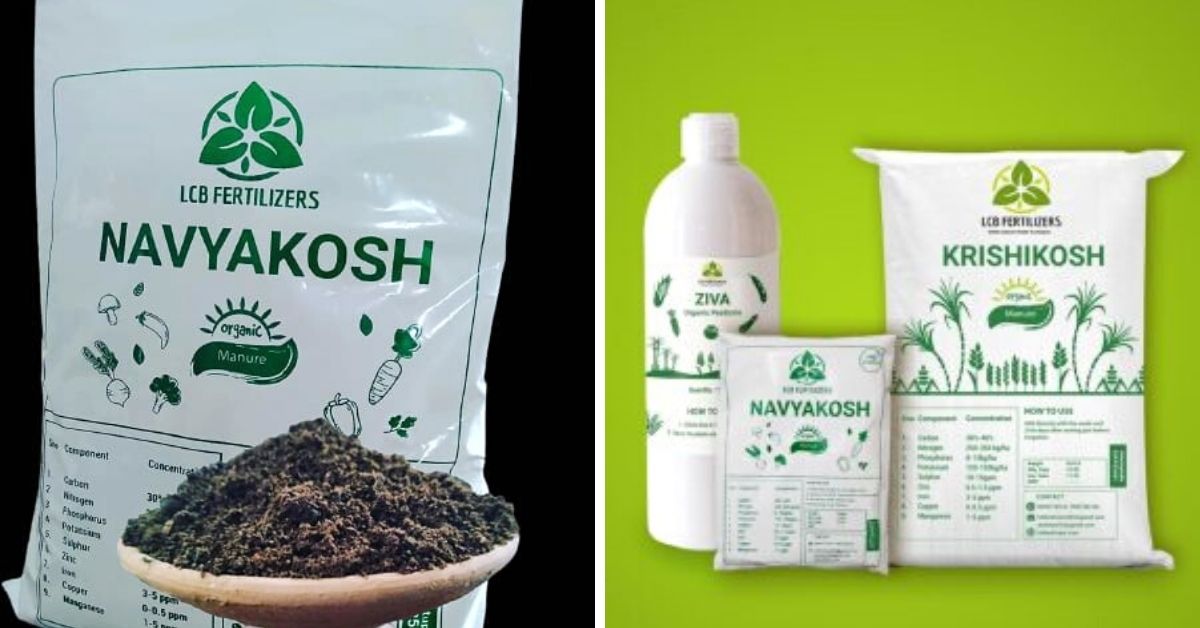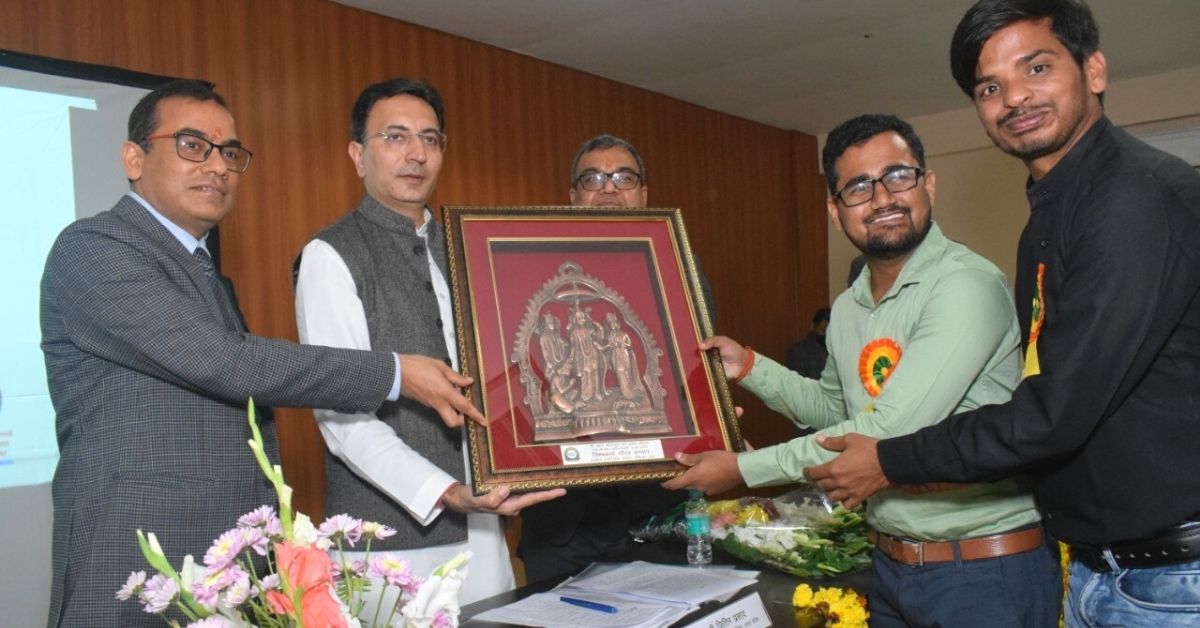Growing up, Akshay Shrivastav watched his father, a farmer in UP’s Kushinagar district, struggle with a myriad of issues — poor irrigation infrastructure, increasing production cost, inefficacy of fertilisers, and so on.
Akshay says an excessive use of chemical fertilisers result in low productivity on farms and causes environmental pollution. Soil quality deteriorates, because water retention capacity is reduced, resulting in excessive requirements.
“I pursued chemical engineering to gain a deeper understanding on the subject and identify solutions for improving agricultural yield,” he tells The Better India. “My father’s experiences on his farm made me want to do something to help the community.”
For this, the 23-year-old has innovated a biofertiliser that he says can help increase agricultural productivity by 35 per cent, helping over 3,000 farmers across India.
Amid an uncertain future

Akshay began his research during his second year of graduation. “I received technical and financial support from the college faculty and my family. Due to a lack of adequate infrastructure in college, I travelled to different institutes across Uttar Pradesh, including the Indian Institute of Technology (IIT) to complete my prototype. I also interned during vacations to develop the product,” he adds. He also approached the sugar and alcohol industries to understand how he could commercialise his product.
As he made it to his final year of graduation, the COVID-19 pandemic struck. Akshay was forced to choose between his dream and giving up on it to find a job in such precarious times. “The situation was frustrating, owing to the economic instability in the market. I came to a dead-end after all the progress I’d made over the years,” he recalls.
Eventually, Akshay chose his dream project. “I motivated myself to keep going. In August 2020, I developed a market-ready biofertiliser using 60 types of microbes.”
“These microbes are capable of enhancing nine types of nutrient contents, including potassium, nitrogen, zinc, and carbon. I prepared 2 kilos of the product and sent half to the National Accreditation Board for Testing and Calibration Laboratories (NABL) for lab testing, and the remaining for ground trials. The results were commendable, and improved crop yield,” he says.
Akshay also developed a super absorbent granule that holds water 300 times its weight and eventually releases it slowly. “It also includes nanoparticles that speed up biomass decomposition and increase microbial activity in the soil. The combination increases the crop yield between 15 per cent and 40 per cent, depending on the variety, and reduces irrigation needs by 33 per cent (as per NABL report),” he adds.
In March 2021, he established his startup LCB Fertilizers to sell this biofertiliser under the brand name Navyakosh.
His work was published in a newspaper, and Akshay began receiving orders from farmers across the country. “Initially, I received orders from 350 farmers across 150 cities. Owing to the response, I applied for grants from various government startup funding schemes, including Capri Foundation and Startup India, to set up a manufacturing unit,” he adds.
Making farming easy

In Sitapur, farmer Amrinder Singh says it was a friend who recommended Akshay’s biofertiliser to him. “For years prior, I had been relying on using chemical fertilisers such as urea and DTP. I tried Navyakosh for one crop cycle to grow vegetables,” he adds.
Amrinder says the fertiliser helped increase his output by 40 per cent. “Earlier, I would spend Rs 3,500 per bigha land on crops. This reduced the production cost to Rs 1,200. The crops were less susceptible to diseases. The overall reduction in production cost and increase in yield has benefited me,” he adds.
Meanwhile, Akshay says his company has earned Rs 10 lakh in nine months, and is struggling to meet the ever-increasing demand for his products. “I have a production capacity of 10 tonnes and receive orders worth 25 tonnes a month. I plan to expand my production to 60 tonnes in the coming months as the number of beneficiaries is increasing exponentially,” he adds.
“Earning money comes second. My priority is to provide effective and targeted solutions to farmers. I will formulate more products in future that benefit farmers at large,” he says.
To place an order, click here.
Edited by Divya Sethu
No comments:
Post a Comment